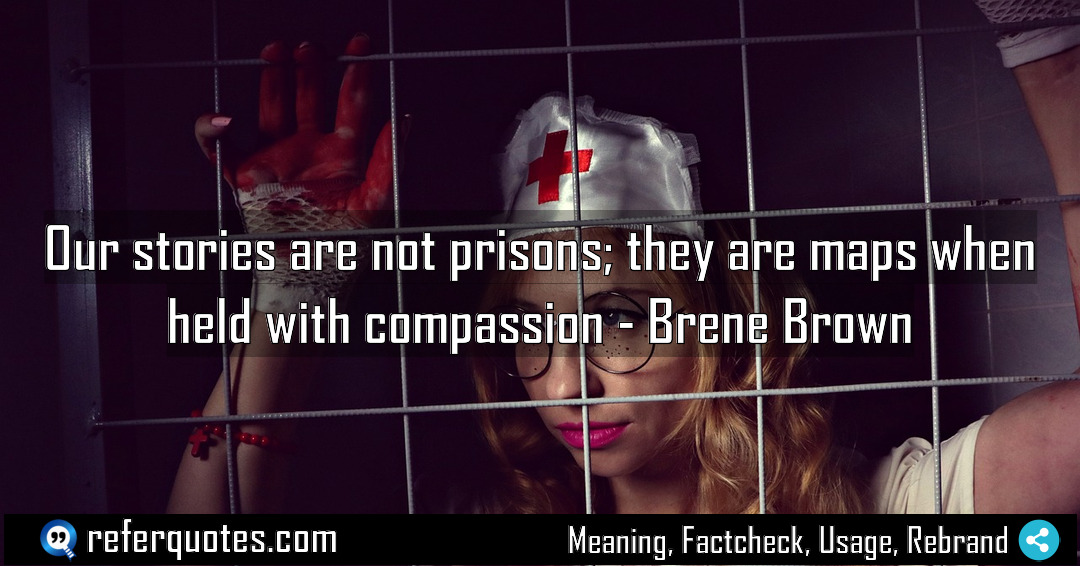Our stories are not prisons; they are maps… that’s the core of it. It’s a powerful reframe that can literally change how you walk through life. Let’s break down why this concept is so transformative.
Share Image Quote:Table of Contents
Meaning
It’s about shifting your perspective on your own past. Your history doesn’t have to be a cage that traps you; it can be a guide that shows you where you’ve been and, more importantly, where you can go.
Explanation
Okay, so here’s the real-world application I’ve seen over and over. When we treat our stories like prisons, we live inside them. We let a single failure, a painful childhood moment, a harsh word, define our entire identity. It becomes the four walls we can’t see beyond.
But when you hold that same story with compassion—and that’s the key word, the active ingredient—everything changes. You’re no longer a prisoner to that event. You become the cartographer of your own life. You look at that painful experience and you say, “Okay, that’s the treacherous mountain pass I navigated. That’s the river I crossed. And look, because of that, I now know a better path.” The story becomes data. It becomes wisdom. It’s not about what happened *to* you, but what you learned from it and how it shaped your resilience.
Quote Summary
| Context | Attributes |
|---|---|
| Original Language | English (3668) |
| Category | Wisdom (385) |
| Topics | compassion (36), meaning (50), story (19) |
| Literary Style | measured (7), poetic (635) |
| Emotion / Mood | reassuring (55), reflective (382) |
| Overall Quote Score | 72 (65) |
Origin & Factcheck
This is straight from the research of Dr. Brené Brown. It’s in her 2004 book, Women & Shame: Reaching Out, Speaking Truths, which came out of her work in the United States. You sometimes see it floating around unattributed, but this is classic Brown—tying profound insight directly to the experience of shame and vulnerability.
Attribution Summary
| Context | Attributes |
|---|---|
| Author | Brene Brown (257) |
| Source Type | Book (4032) |
| Source/Book Name | Women & Shame: Reaching Out, Speaking Truths (39) |
| Origin Timeperiod | 21st Century (1892) |
| Original Language | English (3668) |
| Authenticity | Verified (4032) |
Author Bio
Dr Brene Brown is the author of books such as Daring Greatly and The Power of Vulnerability. The TED talk and Netflix production based on her research reached out to millions of audience. She researches effects of courage and vulnerability in shaping people's work and relationships. She leads the Brené Brown Education and Research Group and provides evidence-based insights into practical tools to help people train themselves
Official Website |Facebook | X | Instagram | YouTube |
Where is this quotation located?
| Quotation | Our stories are not prisons; they are maps when held with compassion |
| Book Details | Publication Year: 2004; (other edition details unknown) |
| Where is it? | Approximate page from 2004 Hazelden edition, Chapter: Story and Healing |
